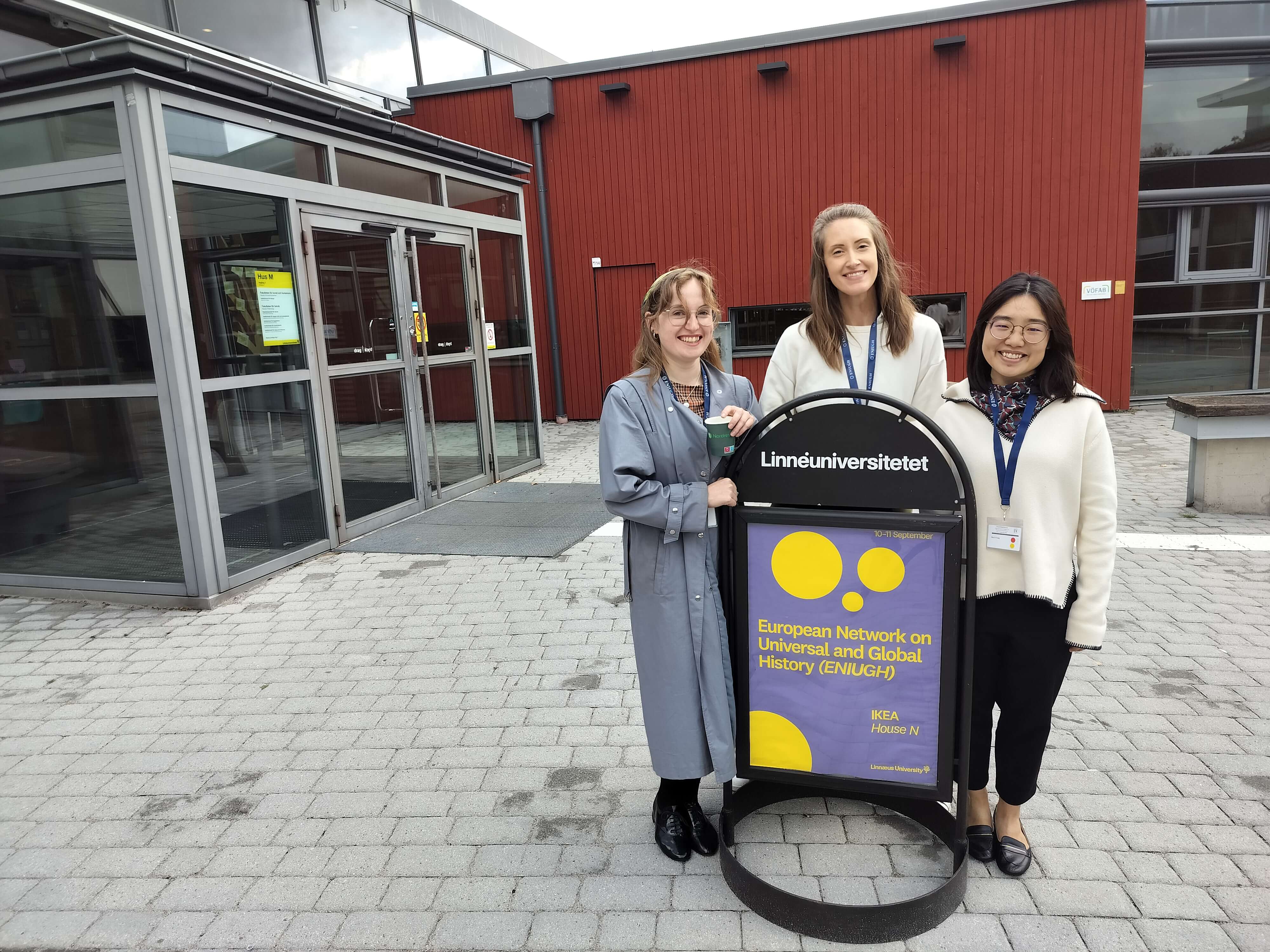PRIVACY researchers at ENIUGH conference

Hannah Hjorth, Felicia Fricke, and Hui-Yi Yang recently participated at the ENIUGH conference in Växjö, Sweden—a forum for research in global and transnational history—where they each presented their current work.
Felicia and Hannah presented in the panel Nordic Colonialism in the Lesser Antilles: New Research Frontiers, which focused on the shifting perspectives on Danish and Swedish colonialism in the Caribbean. Recent research moves away from national historiographies centred on European colonizers, and instead investigates local conditions and the lived experiences of enslaved and free Afro-Caribbean populations. In addition, these perspectives increasingly address gender as part of the analysis.
Felicia’s paper examined interisland inheritances between Dutch St. Eustatius and Swedish St. Barths (1796–1828), using wills and probate records to highlight gendered experiences of property, widowhood, and legal responsibility. Hannah’s presentation focused on police court records from St. Thomas (1780–1800), analyzing how free people of colour navigated disputes in public spaces and negotiated boundaries between privacy, honour, and social status.
Hui-Yi presented in the panel Knowledge Production as a Colonial Strategy, which investigated how imperial powers used knowledge and representations of indigenous people to justify and further nationalist, colonial, and imperial projects. Her paper examined the Siraya indigenous people’s interior burials in their houses in Formosa during Dutch colonisation (1624–1668), combining archaeological records and colonial accounts to reflect on the use of domestic space for this practice. Her research aims to reconstruct Dutch colonisers' knowledge of the Siraya through architectural and spatial analysis.
